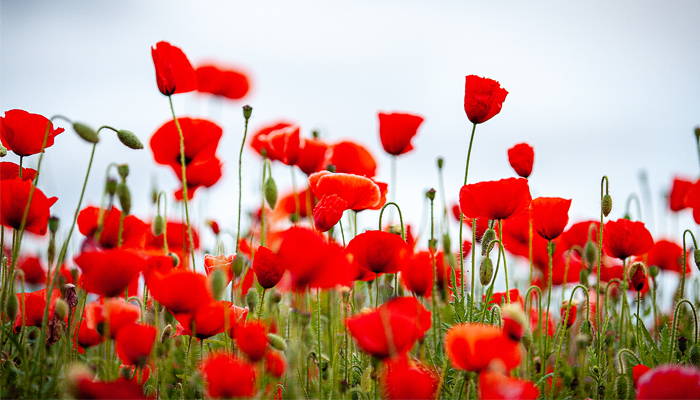Remembrance Day

Remembrance Day - November 11
Each Remembrance Day, let’s come together as a community to honour the brave Canadians who have served and sacrificed for our country. Their courage, dedication and selflessness have helped to provide the freedoms we enjoy today.
This is a time to remember not only those who fought on distant shores but also those who continue to serve by standing strong in the face of adversity to protect our values and way of life.
By pausing for a moment of silence, attending a local ceremony or simply wearing a poppy, we can show our gratitude and ensure the legacy of veterans live on, their sacrifices never forgotten. Annual events are often hosted by Royal Canadian Legion
Veterans’ Week – November 5-11
Every year leading up to Remembrance Day on November 11, we take time to reflect on the sacrifices made by members of Canada’s military. Canada’s diverse population of Veterans has served on many kinds of missions, both at home and abroad and during both times of peace and conflict.
Indigenous Veterans Day – November 8
Indigenous Veterans Day is a time to recognize Indigenous contributions to military service.
First Nations, Inuit and Metis people have a long and proud tradition of military service to our country. Thousands of Indigenous people (and an unknown number of Inuit and Metis people) who served during WWI, WWII and the Korean War brought valuable skills with them, including patience, stealth and marksmanship.
Indigenous communities have also contributed to the war on the home front, by donating money, clothing and food, and allowing access to reserve lands for construction of airports, rifle ranges and defense installations.
Many Indigenous war Veterans would not receive equal treatment compared to other Canadian Veterans as their service was often overlooked and underappreciated. On November 8, Canadians are encouraged to make efforts to better understand the role Indigenous Veterans have had and to honour their contributions and sacrifices. Source: Veterans.gc.ca
Code Talkers
“While Indigenous soldiers again served as snipers and scouts, as they had during the First World War, they also took on interesting new roles during this conflict. One unique example was being a "code talker." Men like Charles “Checker” Tomkins of Alberta translated sensitive radio messages into Cree so they could not be understood if they were intercepted by the enemy. Another Cree-speaking "code talker" would then translate the received messages back into English so they could be understood by the intended recipients.” – Source: https://www.veterans.gc.ca/en/remembrance/people-and-stories/indigenous-veterans
Resources:
- Canada.ca - Learning Resources
- Commemorative Events: https://www.veterans.gc.ca/en/remembrance/commemorative-events
- Memorials: https://www.veterans.gc.ca/en/remembrance/memorials
- Native Women’s Association of Canada – Indigenous Veterans Day – Remembering and honouring the many Indigenous women who have served in missions across Canada and the world. https://nwac.ca/assets-knowledge-centre/Veterans_Day_12_Pages_WEB-1-compressed_2022-11-08-003150_trft_2023-10-30-200707_kxgz.pdf
- Charles “Checker” Tomkins: Cree Code Talker from Alberta (video): https://www.youtube.com/watch?v=7JiUPBKST5M